Special Report
How to Avoid a Post-Thanksgiving Food Hangover
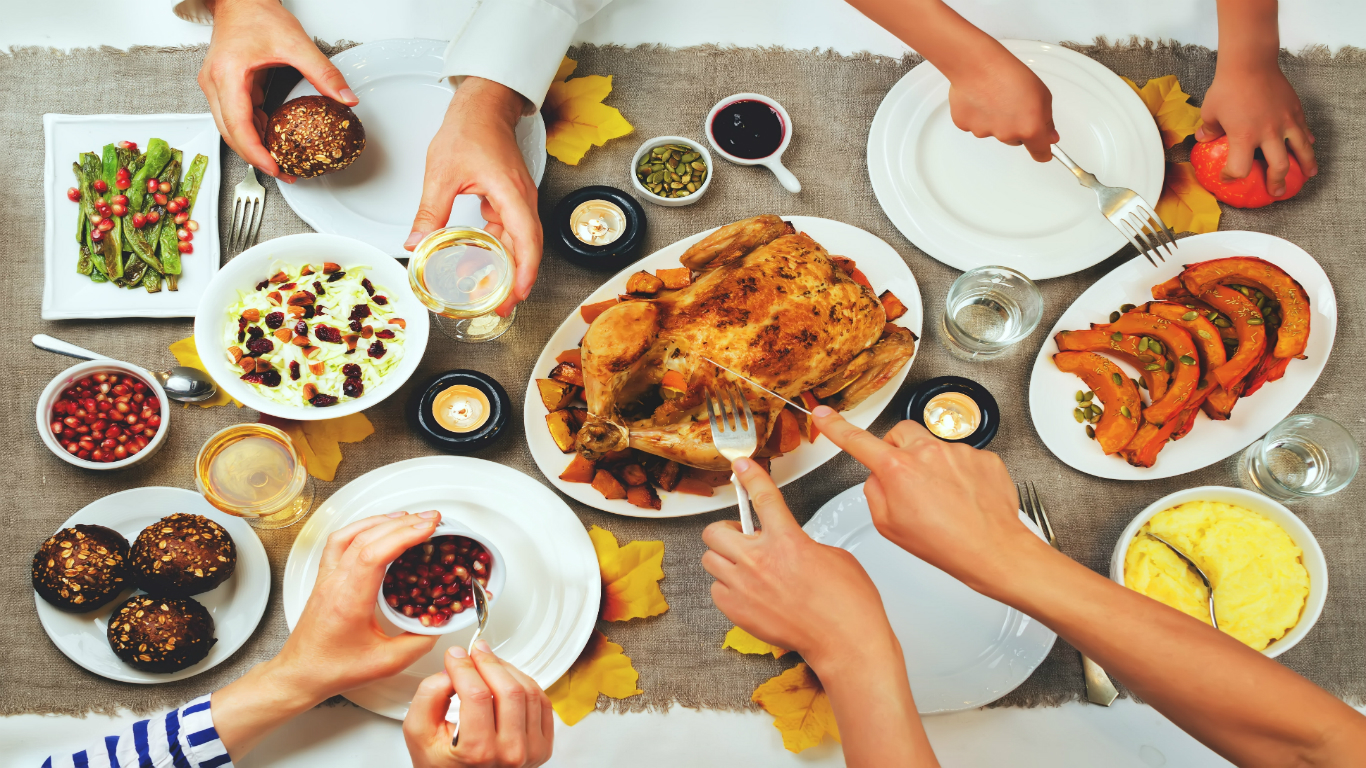
Published:
Last Updated:

The best treatment for a hangover, whether from alcohol or food, is to avoid getting it in the first place. This is no small feat in the case of Thanksgiving, since it’s America’s biggest food holiday by far. You definitely don’t want to feel remorseful about indulging after this festive holiday meal, but the lethargy and headache that can set in the next day might make remorse inevitable.
“The traditional Thanksgiving meal may add up to 3,500 calories,” said Edna Cox, a registered nutritionist and certified specialist in gerontological nutrition at Carolina Nutrition Consultants in Lexington, South Carolina. According to the USDA, maximum recommended consumption for caloric balance is 3,200 calories for an entire day for an active teenage male, 2,400 for his female counterpart.
To determine the best ways to avoid a post-Thanksgiving food hangover, 24/7 Wall St. asked several doctors, nutritionists, and dietitians to share their most helpful tips.
Click here to read how to avoid a post-Thanksgiving food hangover.
“Instead of trying to make the foods we eat on special occasions healthier, we like to focus more on eating well on all the other days of the year and allowing yourself to enjoy your traditional holiday meals without feeling guilty,” Kayla Fitzgerald, a registered dietitian and nutritionist at Nutrition Rites, a nutrition counseling center in Charleston, South Carolina, said.
Overeating during the holiday weekend is not going to have a negative effect on your health if splurging is not common occurrence for you. If, however, you are only strict with your diet during the week and habitually forget about healthy foods on weekends, said Dr. Alyson Pidich, medical director of the Ash Center, a longevity and anti-aging clinic in New York City, then overindulging on Thanksgiving will add on weight because you’ll be eating even more than on your usual days of feasting.
Bingeing on Thanksgiving is not entirely due to weak willpower. There is a biological explanation for why you sometimes seem unable to stop eating: the so-called “hunger hormones,” — ghrelin (which controls appetite) and leptin (which tells your brain you’re full). The more carbs or sugar you consume, the higher your insulin will spike, according to Dr. Daryl Gioffre, a New York City nutritionist, chiropractor, and alkaline diet expert and the author of “Get Off Your Acid.” High insulin levels correlate with high ghrelin levels and can lead to insulin resistance, which is analogous to (though different from) leptin resistance. “You’re basically always hungry and never full,” he added.
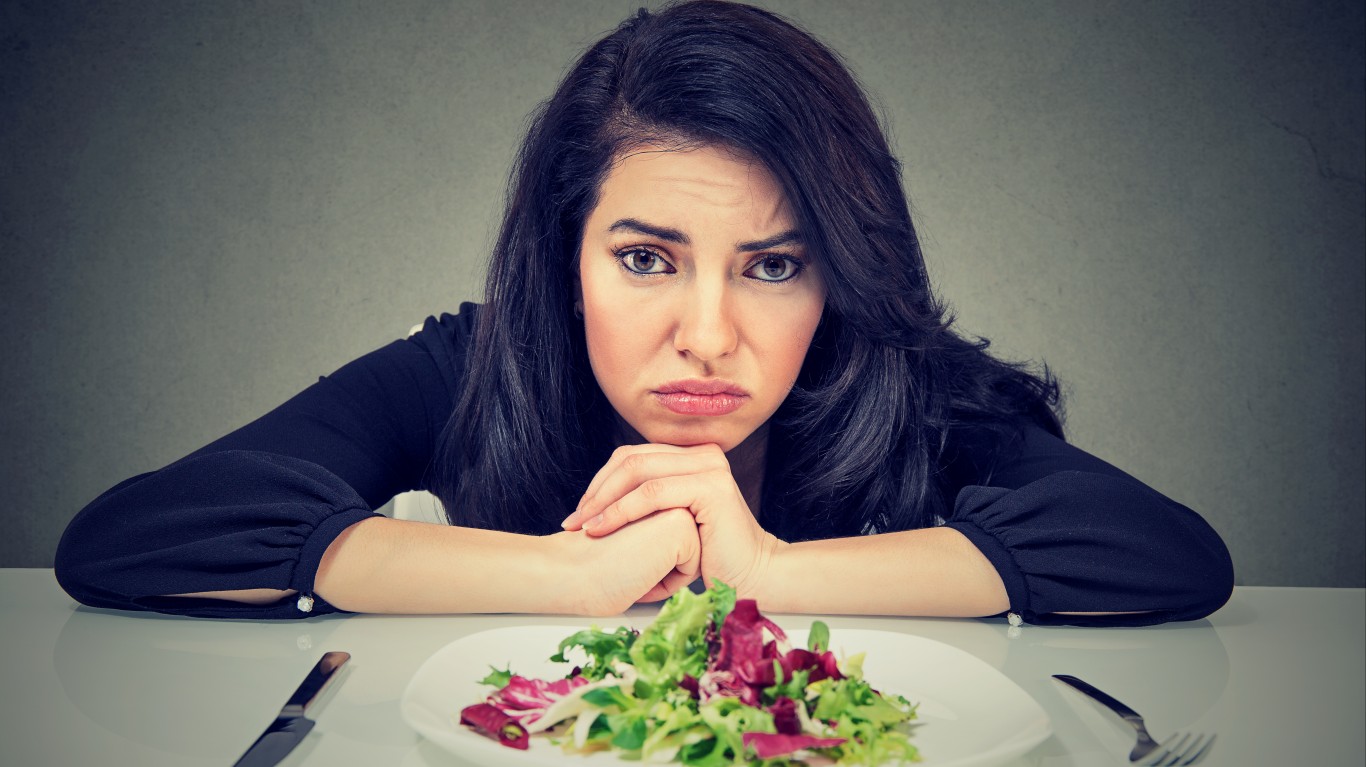
1. To eat or not to eat during the day
Health experts are unanimous: The single worst thing you can do on Thanksgiving is not eat all day so you have room for dinner. Depriving your body of the food it needs will backfire on you, resulting in overeating, blood sugar spikes, lethargy, and ultimately a food hangover. Instead, have a highly alkaline breakfast — think vegetables and green smoothies — and a lunch rich in healthy fats, Gioffre said. “These will provide the necessary minerals the body needs to neutralize the acid that’s about to come from all the meat,” he added.
Have a protein snack about three hours before dinner time, Pidich said. You will consume fewer calories and will be full for longer. That way, when it’s time for the main course, you won’t rush to go all in, she added. Cox recommended a high protein snack – nuts, peanut butter and whole grain crackers an hour to two hours prior to the main event.
[in-text-ad]
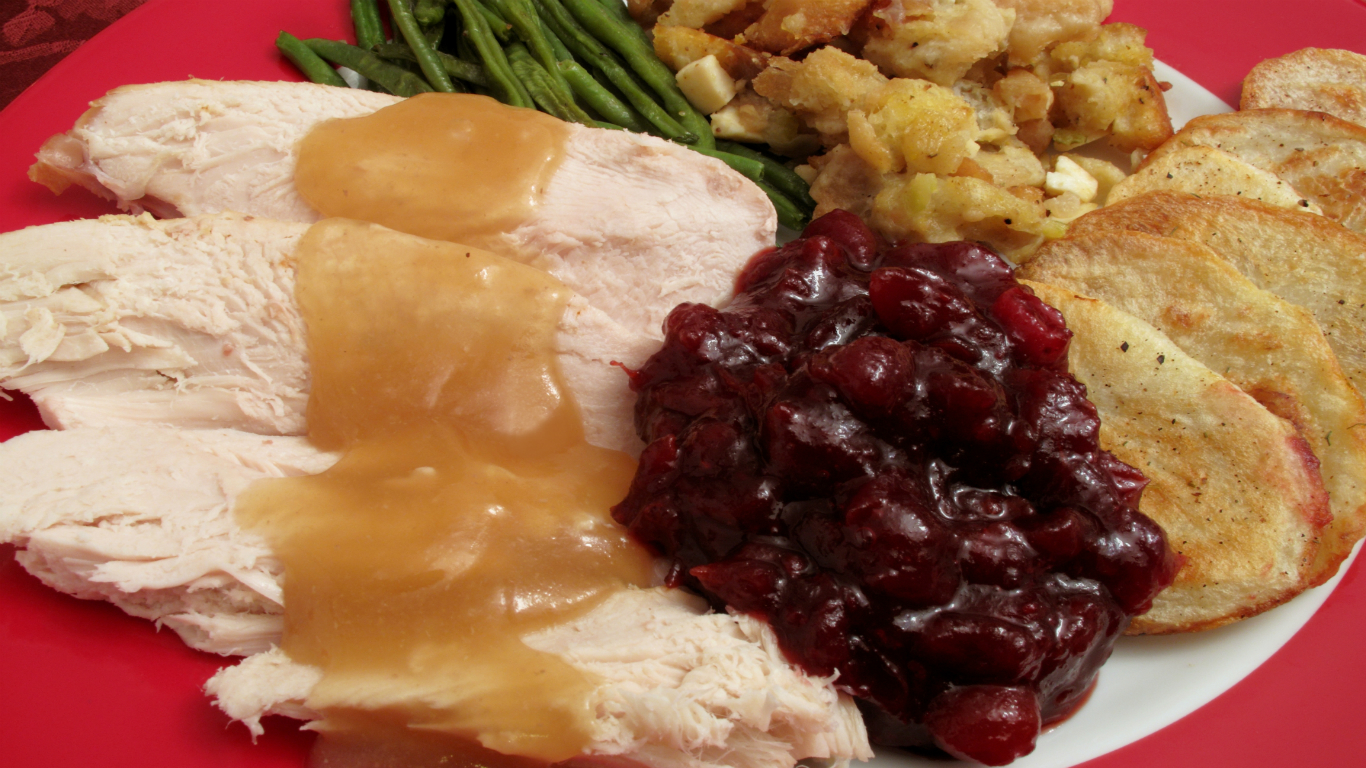
2. Avoid the worst foods
“The stuffing is basically bread and butter; the gravy is just sauce of fat; and the cranberry sauce, when coming from a can, has too much added sugar,” said Dr. Alyson Pidich, medical director of New York City’s Ash Center.
“Simple carbs are the worst,” Gioffre said. “They are basically sugar.” (When digested they are converted into glucose, or blood sugar.) Sugar lowers the pH of your blood, making it more acidic, and thus more inflammatory. Simple carbs on the Thanksgiving table are found in desserts and anything with white flour (including flour-thickened gravy).
Desserts are the worst culprits as they are high in both fat and sugar, Fitzgerald said. “A standard slice of pecan pie has about a third of the average person’s calories and half the amount of fat recommended per day.”
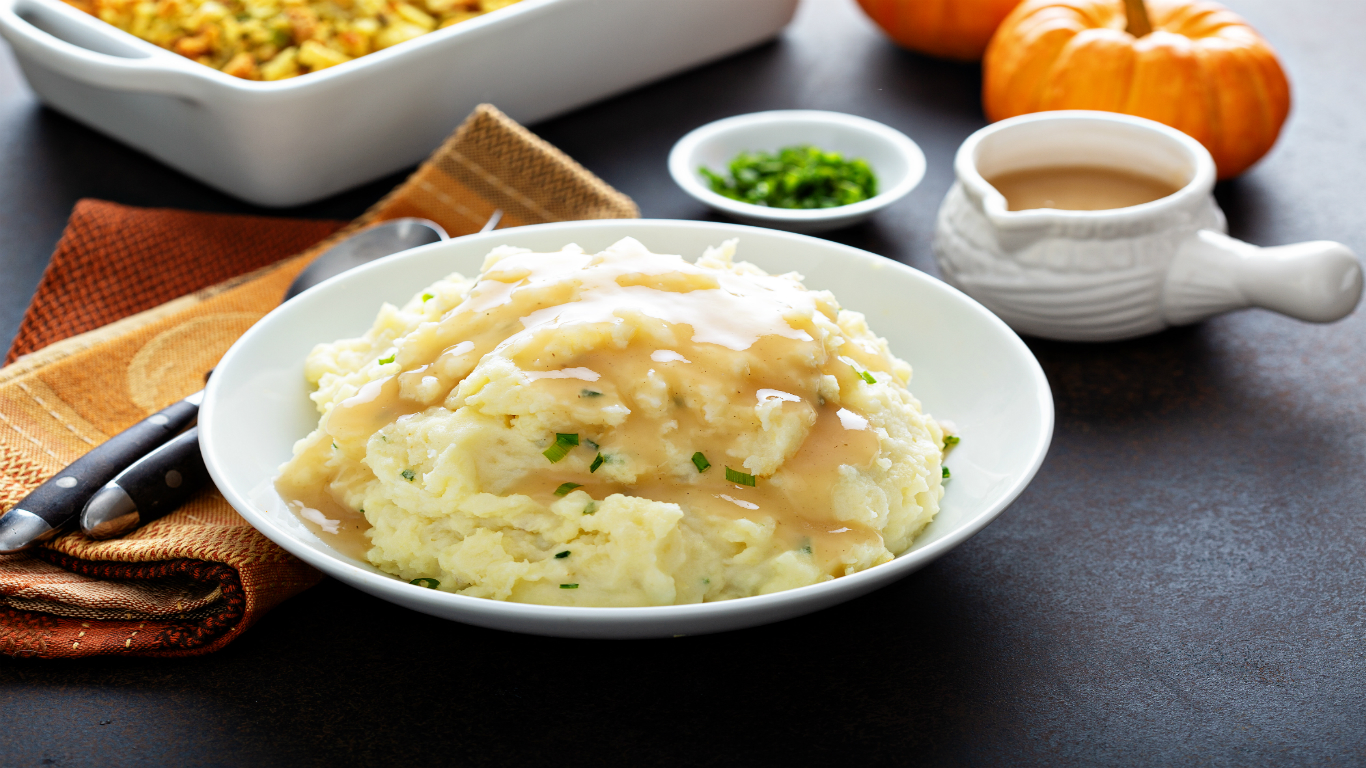
3. If you’re going for seconds, don’t go for the potatoes
Cox recommended that Thanksgiving diners fill up on steamed or roasted vegetables rather than casseroles. If you must have something more than vegetables, it’s better to increase your protein intake than to eat more carbs, Pidich added. “Turkey is exceptionally lean meat, so it’s OK to have two servings of it.” (A 100 grams — 3.5 ounces — of turkey breast without the skin has 30 grams of protein and 2 grams of fat.)
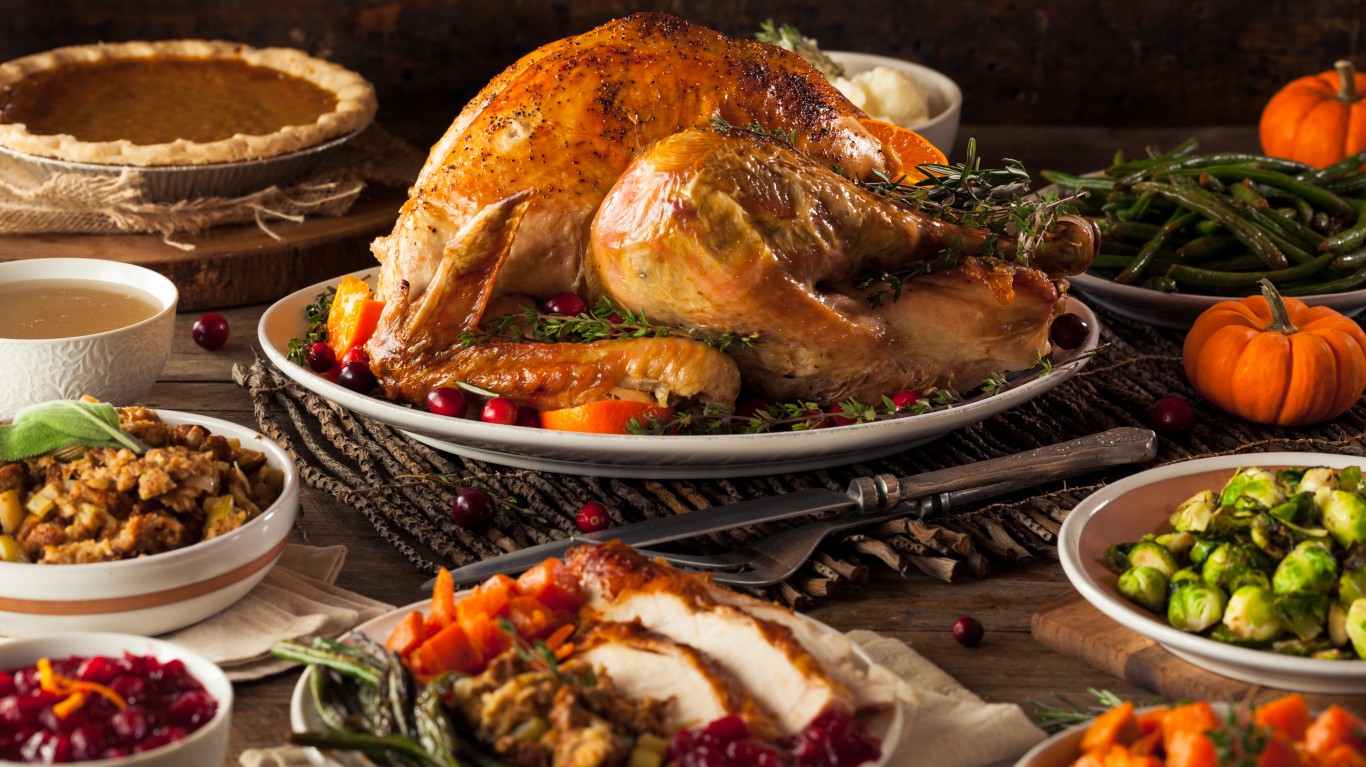
4. The “turkey makes you sleepy” myth
Many people believe they get tired after the Thanksgiving meal because turkey contains tryptophan, an amino acid that helps the brain make serotonin, which in turn controls mood and induces sleep. “The truth is that the high-fat and high-carbs foods are causing the sleepiness,” Pidich said. Chicken, which people eat a lot more often than turkey, has roughly the same amount of tryptophan. Do you feel tired after eating chicken?
[in-text-ad-2]
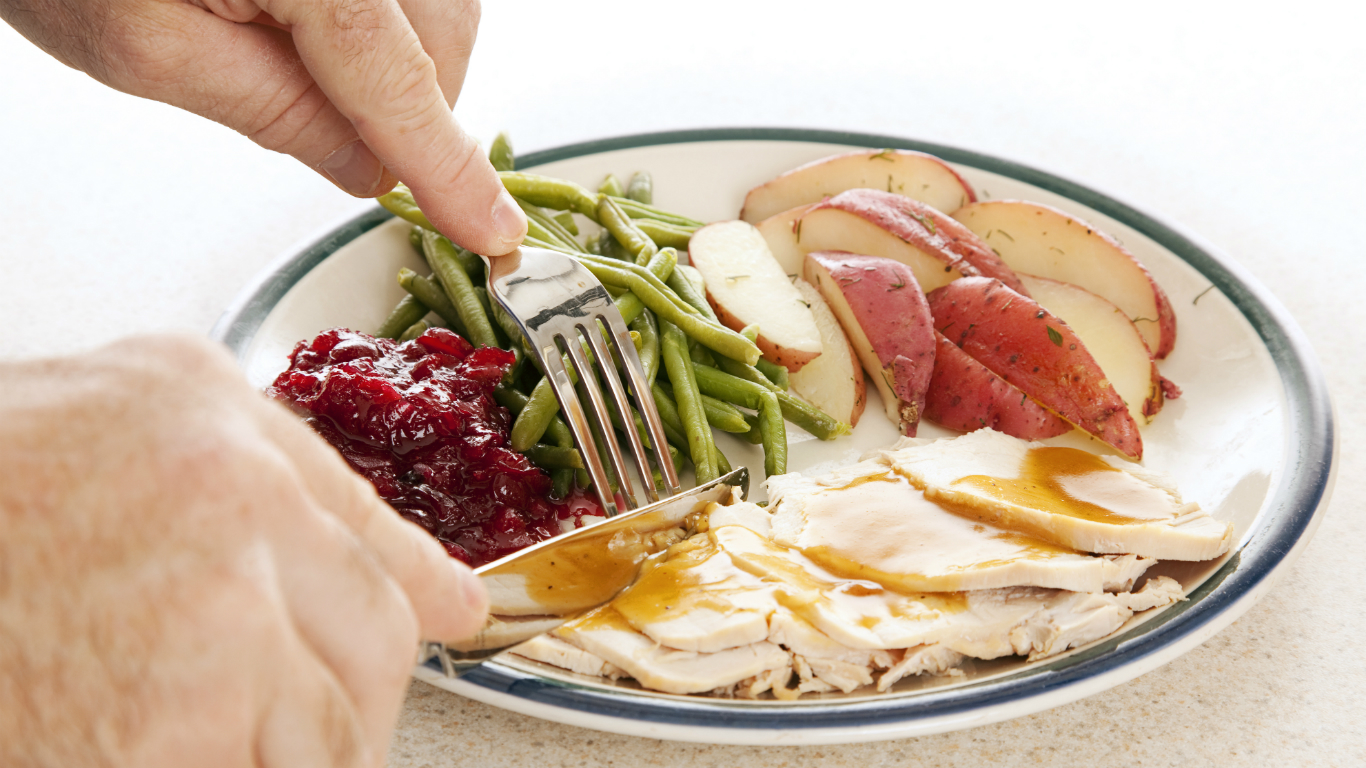
5. Food and math go hand in hand
Pidich recommended dividing your plate mentally into three parts, halving it and then splitting one half in two again. Fill the largest section with vegetables — Brussels sprouts, green beans, and greens in general are ideal options. They are low in calories but rich in vitamins and minerals, which the body needs in order to function, Pidich said. Lack of those nutrients make it more difficult for the body to recover from overeating.
One quarter of the plate should be filled with starch — preferably sweet potatoes or yams, Pidich said. “They have more complex carbs and are more alkaline, which means no big spike in blood sugar.” Tiredness and headaches are common side effects of glucose buildup in the blood. The worst carbs that lead to big spikes in blood sugar are in the mashed potatoes and stuffing, Pidich added. The remaining quarter of the plate, of course, is for the turkey.
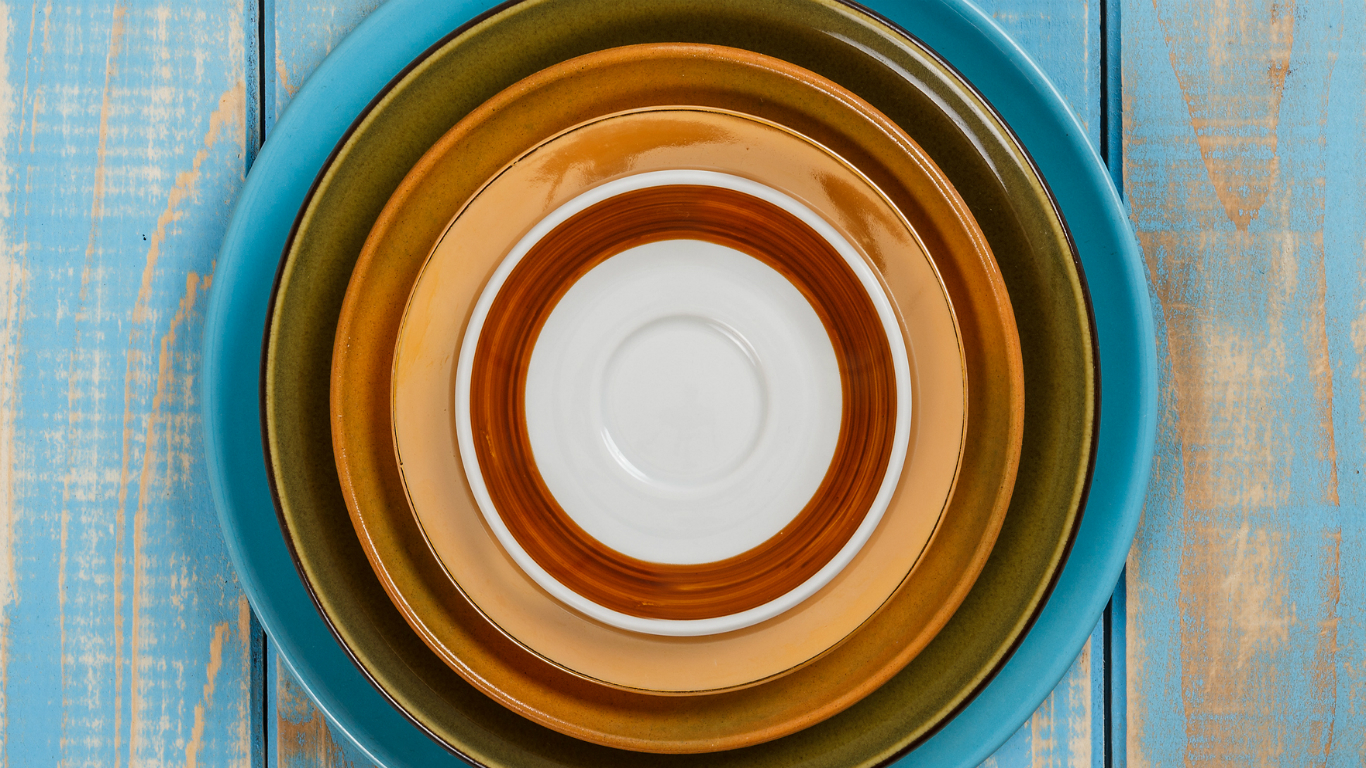
6. Use smaller plates
One easy trick is to use smaller plates. Most sets of dishes likely include both dinner plates and salad plates. “The dinner plates are often very large and when we see the appropriate amount of food on them it can look like not much and we end up adding more than we need,” Fitzgerald said. Try using salad plates instead.
[in-text-ad]

7. Move around to burn off the extra calories
Exercise the day of, or at least the day after, Thanksgiving. “Add an extra workout if you exercise on regular basis,” Pidich said. Go for a walk between courses to keep your metabolism going, Gioffre suggested. Many towns hold Thanksgiving Day family run or walks. If yours doesn’t, you can start one with your friends, family, or neighbors, Fitzgerald suggested.
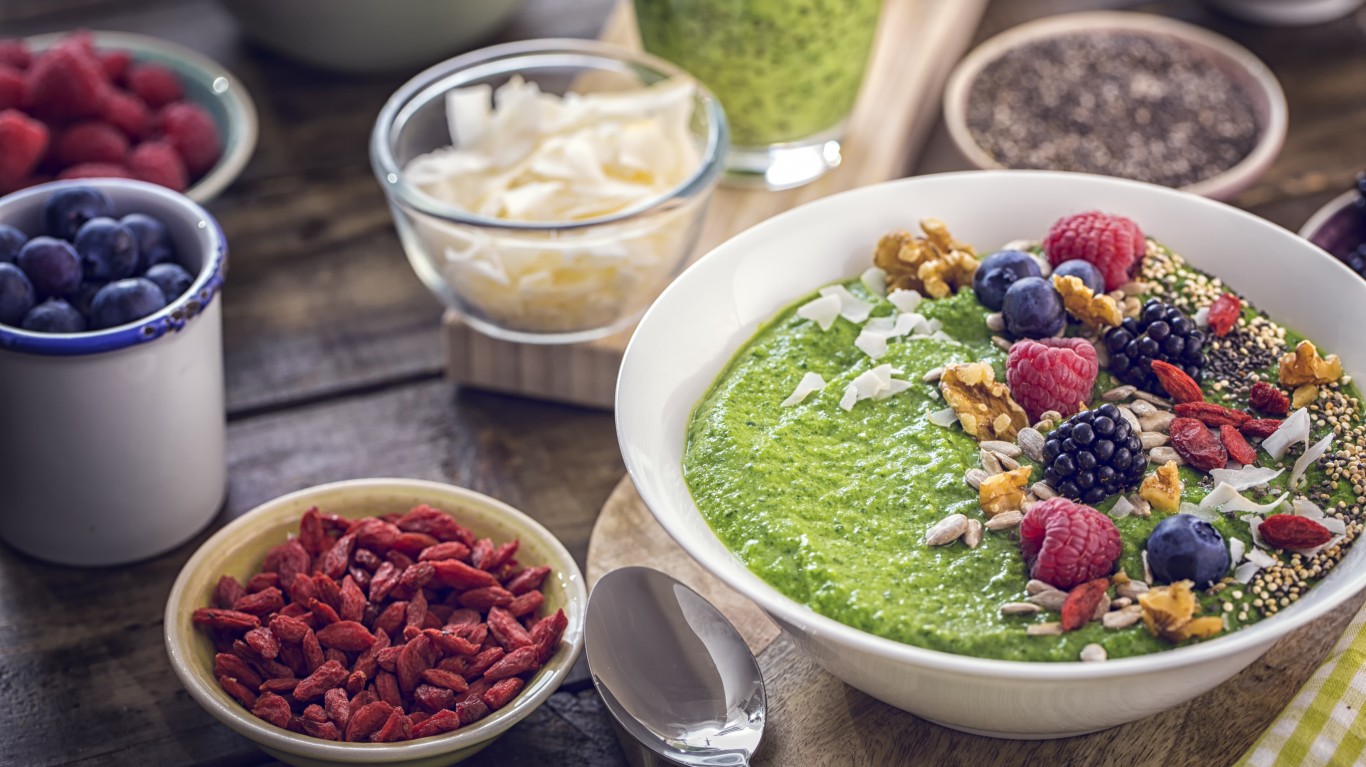
8. What to eat the morning after
Fruits and vegetables are a good choice because they contain electrolytes (minerals like sodium, potassium, magnesium, and calcium), which will be depleted the morning after your feast due to dehydration, Fitzgerald said. They are also rich in antioxidants to help reverse the inflammation caused from alcohol intake, she added. “A great breakfast would be a smoothie made with Greek yogurt, bananas, spinach, berries, and coconut water.”
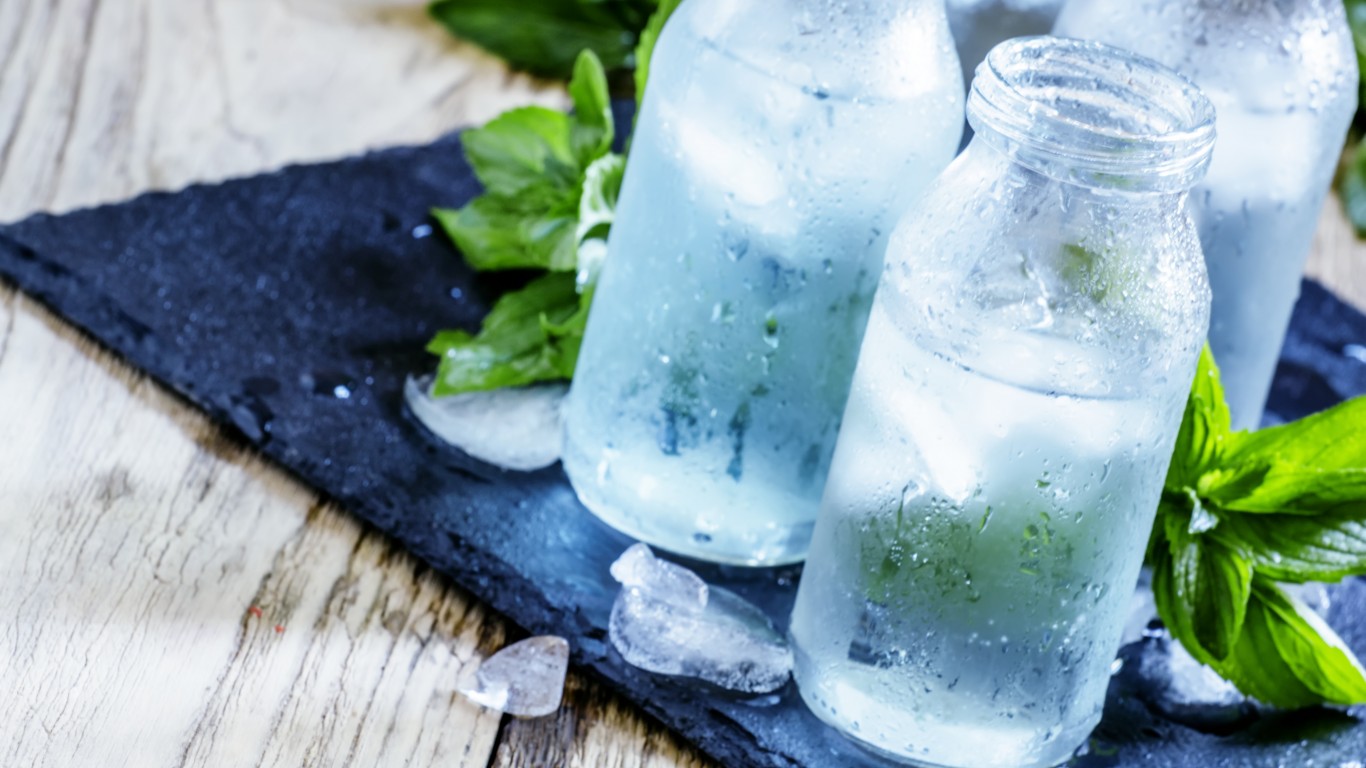
9. Water — the most powerful cure for hangovers
“The solution to pollution is dilution,” as Gioffre puts it.
You may generally drink a lot of water, but Thanksgiving is an exceptional day. You have to drink even more, Pidich said. “Water flushes the sugar out of the body.” High levels of glucose in your blood lead to more frequent urination, resulting in dehydration. You may also want to add B-vitamins, because they help relax the aggravated nerves that cause headaches, she added.
Gioffre also suggested a “detox tea.” Add one inch of turmeric root (an anti-inflammatory), one inch of ginger root (used to relieve stomach ailments), a pinch of black pepper (another anti-inflammatory), and a lemon slice to your cup of tea.
[in-text-ad-2]
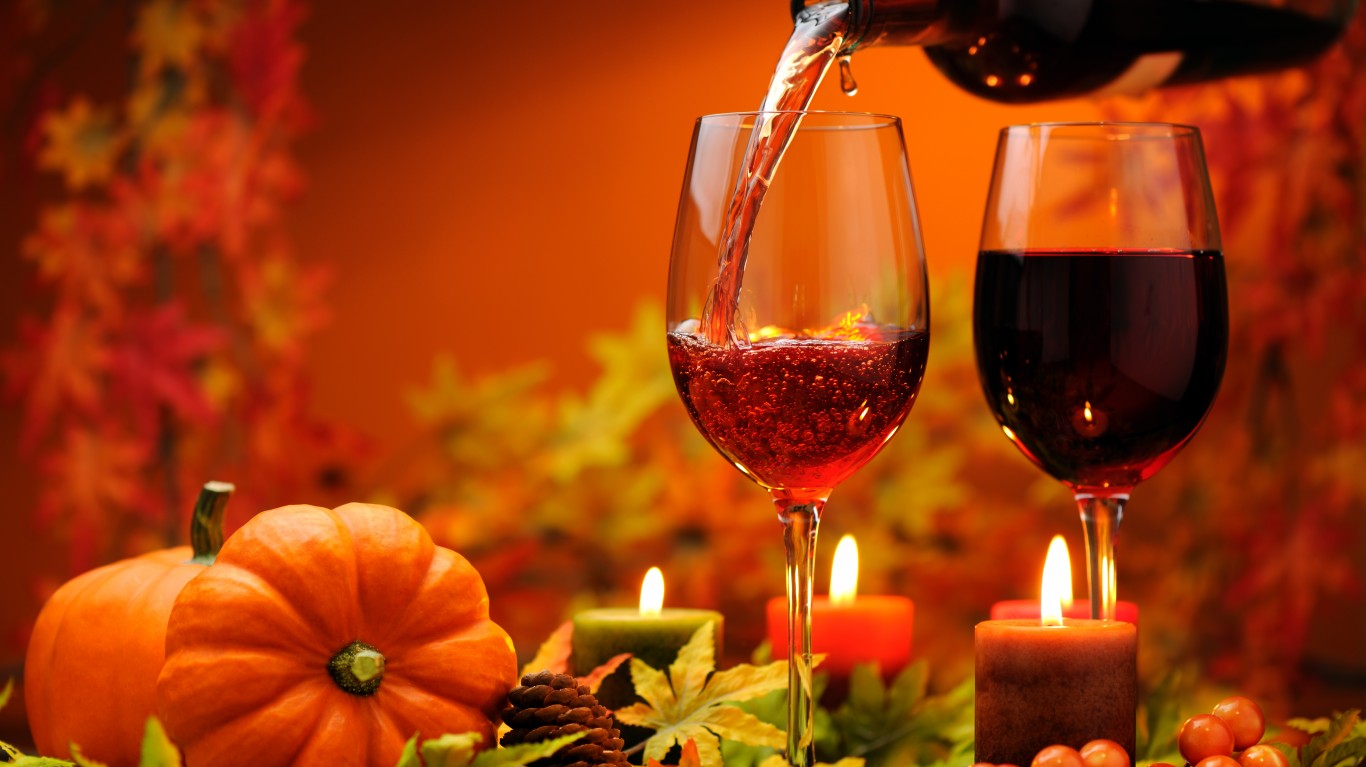
10. The truth about alcohol
“The standard for one serving of wine is only 5 ounces,” Pidich said. But glasses can contain up to 20 ounces, she added. “So you may think you only had two glasses of wine, when in fact you’ve consumed about 4 to 5 servings.” This is extra sugar and calories you can do without if you want to help your body can avoid a hangover.
If you’re one of the over 4 Million Americans set to retire this year, you may want to pay attention.
Finding a financial advisor who puts your interest first can be the difference between a rich retirement and barely getting by, and today it’s easier than ever. SmartAsset’s free tool matches you with up to three fiduciary financial advisors that serve your area in minutes. Each advisor has been carefully vetted, and must act in your best interests. Start your search now.
Don’t waste another minute; get started right here and help your retirement dreams become a retirement reality.
Thank you for reading! Have some feedback for us?
Contact the 24/7 Wall St. editorial team.